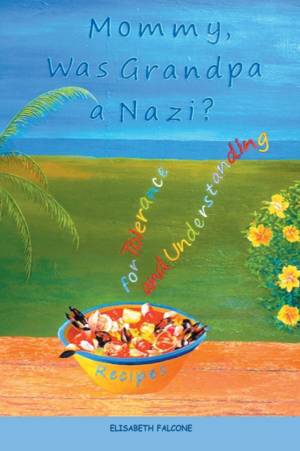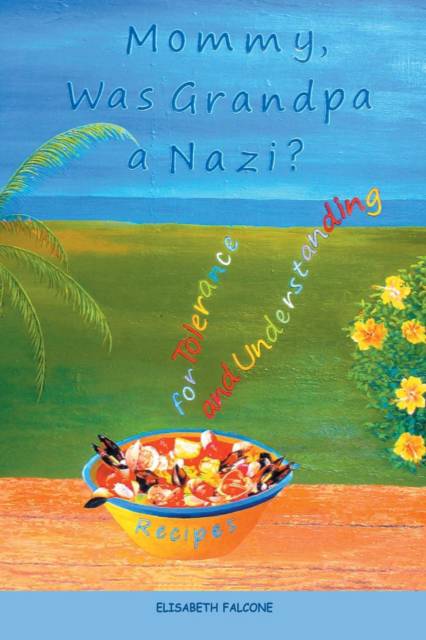
- Afhalen na 1 uur in een winkel met voorraad
- Gratis thuislevering in België vanaf € 30
- Ruim aanbod met 7 miljoen producten
- Afhalen na 1 uur in een winkel met voorraad
- Gratis thuislevering in België vanaf € 30
- Ruim aanbod met 7 miljoen producten
Mommy, Was Grandpa a Nazi?
Recipes for Tolerance and Understanding
Elisabeth FalconeOmschrijving
Time seems to stand still when we share a meal with family and friends or with strangers. The concept that food releases a chemical reaction enhancing our capacity for tolerance and understanding is a common thread in the stories of this book. They take us from WWII Germany to present-day Europe and America .
When the author's daughter, Angie, comes home from school and asks, "Mommy, was grandpa a Nazi?", the author wants to find who wants to know and meets with Angie's teacher, Ruth Singer, who is teaching about the Holocaust. They have much in common, and their love of cooking leads to a lifelong friendship.
"Gita's Diary" is about a Polish refugee whose culinary skills help the author's grandmother and her children to survive while the grandfather is in a Nazi labor camp.
In "Gentiles Only", Ruth Singer discovers that in the 1950's Jews are not welcome in some Miami Beach hotels.
"Forbidden Love" is about Silke, a Norwegian immigrant, who falls in love with Julian, a Black man. She learns that in the 1970's racially mixed couples are taboo in America . They separate, but a cousin's magic cooking reunites them.
Paul, an American art student in "Aix Marks the Spot", abandons his prejudice against the Irish when a young Irish pastry chef serves him a delicious dessert.
Soon after the 9/11 attack, Claudia, a Catholic Latina, meets Azir, a Muslim, on a cruise ship. In "Plain Couscous" they set aside their religious differences to enjoy each other and Claudia's picnic.
"Mutti's Story" and "Vati's Story" helped Angie to understand her grandparents' experiences during WWII.
The stories' recipes are listed at the end of the chapter. Complete recipes are in the Appendix.
Specificaties
Betrokkenen
- Auteur(s):
- Uitgeverij:
Inhoud
- Aantal bladzijden:
- 224
- Taal:
- Engels
Eigenschappen
- Productcode (EAN):
- 9781496929693
- Verschijningsdatum:
- 26/08/2014
- Uitvoering:
- Paperback
- Formaat:
- Trade paperback (VS)
- Afmetingen:
- 152 mm x 229 mm
- Gewicht:
- 335 g

Alleen bij Standaard Boekhandel
Beoordelingen
We publiceren alleen reviews die voldoen aan de voorwaarden voor reviews. Bekijk onze voorwaarden voor reviews.











